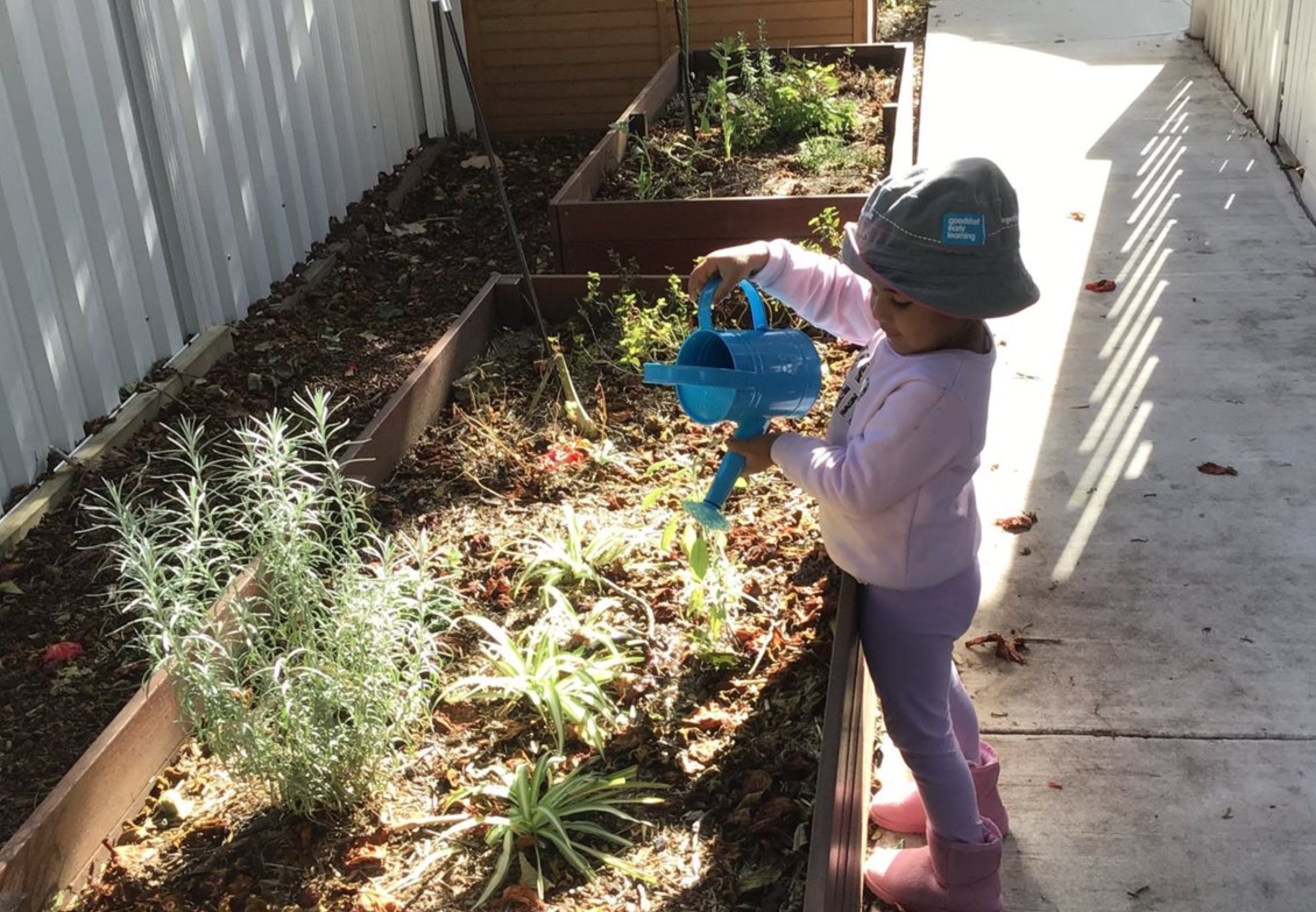The Perfect First Day
Starting Strong and Carrying On...
BY BONNIE LAXTON-BLINKHORN, KINDICARE
Doing anything for the first time can test the nerves! Starting a new job, bungee jumping or even eating escargot. Generally speaking, the risk equals the reward, and this is definitely the case for childcare (although it may not be for escargot!).
Childcare opens the door to a whole new world of opportunity for children and the chance to participate in a rich diversity of experiences, it is, however, a big step and for little feet this can feel pretty scary.
We spoke to Kate Walburn, the centre director at Goodstart Hawthorne, Queensland, to learn how parents can support their children to have a wonderful first day and make a successful transition to childcare.
Kate has been in childcare for more than 15 years and has helped countless families with their first day jitters, which she says are a perfectly normal response.
 Kate Walburn, Centre Director, Goodstart Early Learning Hawthorne. Source: Supplied.
Kate Walburn, Centre Director, Goodstart Early Learning Hawthorne. Source: Supplied.
‘Our job as parents is to raise our children and ensure they are safe, so entrusting them to others to look after is a huge challenge.’
In Kate’s experience every child is different when it comes to settling in, some start early and adjust to childcare quickly, while for children who have spent more time in the home environment it can often take longer.
She says the most important preparation for starting childcare is emotional readiness (for parents and children!)
‘If you are calm and positive, your child will be the same. Children are so in tune with our emotions and will mirror our feelings.
‘It is absolutely normal to be anxious and feel nervous, but there are options, including stay and plays or orientations that will help both of you.’
Planning for the first day
Kate encourages parents to gather as much information as they need to feel comfortable.
‘Ask questions about everything, nothing is too silly to ask. Write a list of questions or have them in your phone so you don’t forget what you wanted to know and remember to have fun.’

Setting up for success is important too, Kate suggests that being organised the night before can greatly reduce any unnecessary stress on the morning of the first day.
‘We give our families a pack with all the information they need, including what to bring, but if you don’t know just ask!
‘Also remember to label everything (including shoes and hats)!!! It so easy and will help your new educators be able to identify all your child’s items.’
In addition to this, Goodstart says it can help to:
- Organise a play date at the centre (if you haven’t already)
- Bring childcare into conversation it helps make starting childcare feel more normal for your child
- Give your child a special item, it doesn’t have to be brand new, but giving them something they’ll use at the centre can help children feel a sense of ownership and excitement about the changes ahead
- Role play and practice getting dressed, packing a lunchbox, putting their bag away or any other features of their new routine
- Plan your exit strategy, a few tears are to be expected, but don’t make it worse by lingering! Plan your goodbye and exit ahead of time.
Kate says that you are if in doubt about anything first day related check in with your childcare service, as educators work hard to get to know children and families before they start.
‘Orientations are a very important part of the process as this is where we can learn about your child’s likes and dislikes. At Goodstart we have an ‘About Me’ form as part of our enrolment pack.
‘This gives us information we can use to settle your child like favourite songs and books and who is in your family, pets, siblings, favourite teddy etc. so we can talk about things that matter to them.’
‘Remember, your centre director and educators are very experienced in first days and deal with them all the time so ask for their advice – and follow it.’

What not to do!
While information is power and knowing what do to is super important, it’s also helpful to know what not to do on your child’s first day. Kate says the three things she notices most often are parents:
- Hanging around too long: ‘Sometimes it is better to do a quick drop off routine such as - put bag away, find something to play with, three high fives, two kisses, one cuddle and say goodbye. Consistency is key, do the same thing every day.’
- Sneaking away without saying goodbye: ‘It is important your child knows you have said goodbye and that you will always be back, otherwise they will always be looking for you or wondering where you went.’
- Being unorganised and having to pop back: ‘this is confusing for your child, are you leaving or staying or taking them with you. It is better to give the forgotten item to a staff member to take into the room or pass a message on.’
Strategies for success in the long-term
Educators support children in the longer-term by creating a sense of excitement and adventure in every childcare day.
Kate says opportunities for play based learning and discovery know no-bounds in high-quality early education settings and these experiences build the confidence and resilience that set our children up for life.

Parents also have a role in supporting their child’s success in the longer term.
‘Stay in contact with your educators, most centres have an app or emails so you can keep up-to-date with information. Also, maintaining as much consistency between home and care as possible will help your child in the long run.’
Kate says that while most children settle in eventually, you shouldn’t hesitate to speak to the centre director if your child continues to be distressed at drop-off.

